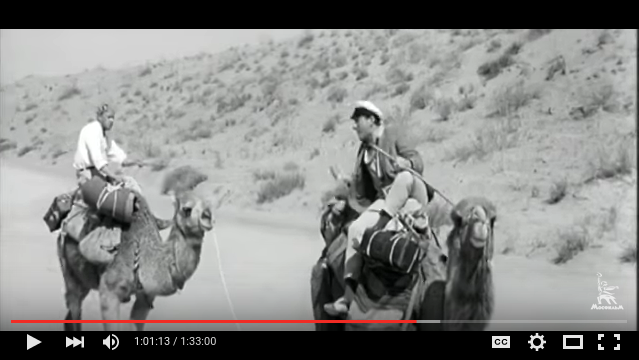I drafted this text around 10 years ago, but was not satisfied, hoping to finish it. However didn't have time and energy to complete. So I just post it as as. Maybe will edit later.
Disclaimer: banalities and naivety to be expected.
People fall into all kinds of believes:
one race is superior to another, private property is the root of evil,
Trump is a Russian spy, US 2020 election was forged,
Putin is behind the migrant crisis on Polish / Belarus border,
the financial system is a conspiracy run against us all,
global warming is caused by human activity, COVID-19 pandemic was
intentionally induced by the world rulers.
How to know what to believe?
There is an opinion that the most efficient way of studying the reality is the
Scientific Method, which allowed us in just several hundred years to acquire
more knowledge than in all previous tens of thousand years of human history.
The essence of the Scientific Method is that if we have an explanation
consistent with all the observed facts in the area of interest, this explanation is not
considered true. It's merely a hypothesis. Why? Because there might be other explanations
of the same facts.
[TODO: Illustrations]
After coming up with a hypothesis, scientists then try to test it by looking for
new facts that contradict the hypothesis. Often this is done by conducting experiments
about predictions following from the hypothesis.
Example: If light has mass, then during solar eclipse the starts nearby the Sun
should be observed at positions different than when the Sun is at other
place of the sky, because the Sun's gravity should change the trajectory
of the light from those starts. Try to observe this, if not happens in reality,
the hypothesis is disproved, if happens - it may speak in favor of the hypothesis;
but also may have some other explanation.
Only after the hypothesis sustained extensive testing that way it becomes a theory.
(But never absolute truth).
Someone can ask: "in many cases experiments about global social and
political reality will be impossible, because we don't control it".
But if the scientific method mindset is chosen, clever tricks can be invented.
At first thought, how can one weight the Earth?
But https://en.wikipedia.org/wiki/Cavendish_experiment
Moreover, today's Internet is an ocean of facts. Experiments may be not needed,
just search for facts that can correct your current understanding.
And that's the main practical take-away for me. When reading
about a news topic interesting to me, I intentionally look for information
that contradicts my current view of the topic.
Then comes fact checking of course.
But not just fact checking of the supportive evidence that formed the current view.
It's important to search specifically for contradicting information.
Classic example: if the hypothesis is that all swans are white,
looking for more and more white swans is almost useless.
Instead, we should intentionally search for swans of other colors.
Such corrective facts are the most informative (https://en.wikipedia.org/wiki/Quantities_of_information).
Therefore, the scientific method allows one to maximize
the correctness of his understanding of the reality, while minimizing
the efforts needed.
Being the shortest path to the truth, it's still a difficult
exercise for a single person to study every question up to complete
understanding.
A collaborative medium would probably be useful (a wiki with certain
agreements or even a specialized structured discussion system).
Still, even practiced personally, this approach often helps to easily
reject some false views imposed by propaganda,
and to keep the remaining views critically questioned.
Selective presentation of facts is one of the main methods of
manipulation and propaganda today.
It allows to maintain false picture using true facts (only let
people see facts consistent with this false hypothesis).
 |
| Reality |
 | ||
| Propaganda: Don't you see? That's a triangle! Go fact-check our reporting! |
 |
| Another propaganda: Don't you see? That's a rectangle! Go fact-check our reporting! |
The Scientific Method allows to consciously navigate the information space,
instead of passively consuming the huge flood of data poured to us
by media, advertisement and one's social media circle.
Maybe the general public does not need to know everything,
if there exists a good leadership with adequate world view and values,
who then uses media for the "Manufacture of consent"
(https://en.wikipedia.org/wiki/Public_Opinion_(book))
based on false explanations, that are easier for public to accept.
But how to be sure the leaders are acting in public interest?
In addition, we know cases in history when the rulers where promoting
crazy ideas and actions.
And I have impression the today's top politicians and decision makers
often start to believe their own propaganda and loose
connection with reality.
In history we also know cases when masses taken by ideas overthrow their rulers.
And today's information technologies allow to amplify false
ideas in social networks, and increase people ability for collective action
and coordination, in particular when pursuing wrong goals.
So the danger of self-induced mass hysteria, xenophobia, instability and violent
uprisings is increasing.
-----------
todo (nuances to cover):
- The most efficient, but still difficult. At least helps to quickly reject many wrong hypotheses,
and stay questioning the remaining ones.
- general public probably does not need to know everything.
wise leadership, consent formation.
- should all children know Santa Claus does not exist?
- Mass hysteria, lynch courts
- collecting ideas
- collaborative medium
- shortcomings
- Pure rational approach
- "showing the instruments of control"
- core, fundamental values
- proportion of attention to different topics
- are human societies suited to live in knowledge of truth? Or we are better suited to live with illusions?
- irrefutable hypotheses
- genetic algorithms, diversity.
- double blind method for courts
